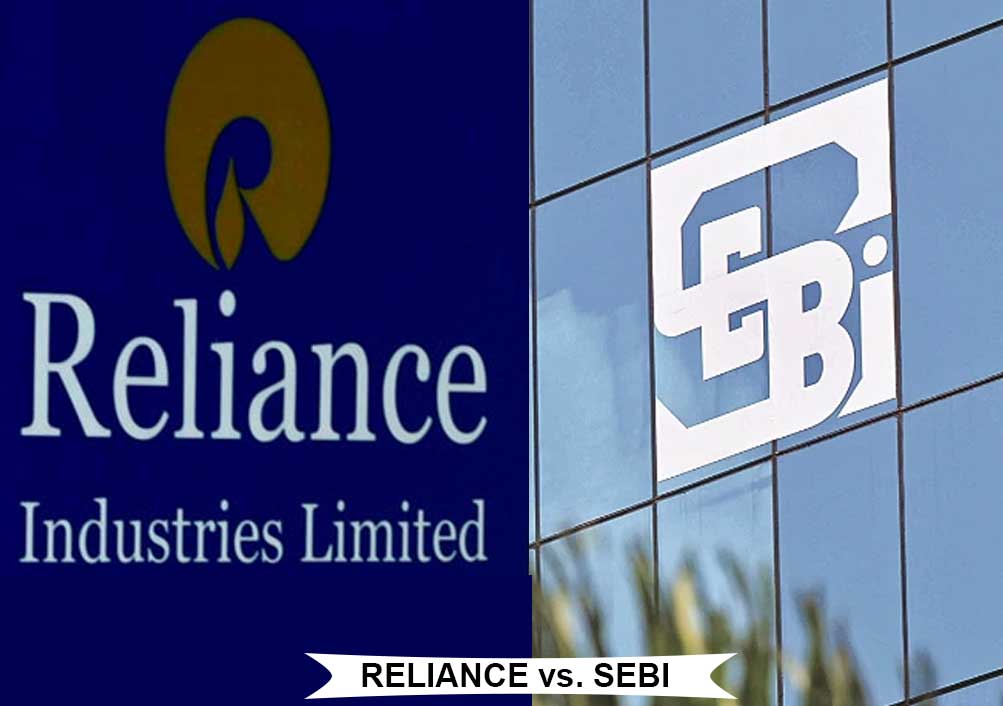In Criminal Appeal No.1167 of 2022-SC-SEBI’s approach in failing to disclose documents raises concerns of fair trial: Top Court asks SEBI to furnish documents relied upon by regulator for initiating proceedings against Reliance Justices N.V.Ramana, J.K.Maheshwari & Hima Kohli [05-08-2022]

Tulip Kanth
New Delhi, August 6, 2022: Coming to the aid of Reliance Industries, the Supreme Court has directed the market regulator, SEBI, to disclose documents which were relied upon by SEBI to initiate proceedings for alleged violation of Takeover Rules and also opined that SEBI has a duty to act fairly, while conducting proceedings or initiating any action against the parties.
Observing that the duty to act fairly by SEBI, is inextricably tied with the principles of natural justice, wherein a party cannot be condemned without having been given an adequate opportunity to defend itself, the Larger Bench of Justice N.V.Ramana, Justice J.K.Maheshwari and Justice Hima Kohli said, “In the case at hand, SEBI could not have claimed privilege over certain parts of the documents and at the same time, agreeing to disclose some part. Such selective disclosure cannot be countenanced in law as it clearly amounts to cherry-picking.”
This matter emanated from a complaint filed with the Securities and Exchange Board of India [SEBI] against Reliance Industries Ltd. [RIL], its associate companies and its directors, alleging that they fraudulently allotted 12 crore equity shares of RIL to entities purportedly connected with the promoters of RIL, which were funded by RIL and other group companies in 1994. SEBI sent a letter to RIL alleging violation of Section 77 (2) of the Companies Act, 1956 and Regulations 3, 5 and 6 of the Securities and Exchange Board of India (Prohibition of Fraudulent and Unfair Trade Practices relating to Securities Market) Regulations, 1995.
RIL, in reply, addressed numerous letters to SEBI requesting for copies of the documents and also RIL filed a settlement application before SEBI, in order to put a quietus to the aforesaid issue which had taken place many years ago. On request of RIL to provide the documents, SEBI replied that the copy of the opinion received by SEBI from a retired judge of the Supreme Court couldnot be provided since it was privileged and confidential in nature.When the opinion of the Retired Judge was sought for the second time, the appellant addressed a letter to SEBI, in 2019, seeking further material in connection with the pending settlement application. SEBI rejected this request again and RIL then moved to High Court of Bombay but its petition was dismissed. The appellant’s interlocutory application seeking documents was again dismissed and thus, this appeal was filed.
On the issue of disclosing privileged documents, the Bench considered SEBI’s reply where it stated that the investigation report was inconclusive and hence further scrutiny of the transactions by experts was called for. That being the case, the Bench held that further Reports and opinions obtained were only an extension of the investigation to help SEBI as a Regulator to ascertain the facts and reach conclusions for prosecution or otherwise.
“The approach of SEBI, in failing to disclose the documents also raises concerns of transparency and fair trial”, said the Bench while also adding that the duty to act fairly by SEBI, is inextricably tied with the principles of natural justice, wherein a party cannot be condemned without having been given an adequate opportunity to defend itself.
In this case, the appellant had been pursuing SEBI for these documents as they believed that an attempt was being made by SEBI to suppress the Opinions and Reports as they were adverse to the cause of SEBI. As per the Bench, SEBI could not have claimed privilege over certain parts of the documents and at the same time, agreeing to disclose some part. “Such selective disclosure couldnot be countenanced in law as it clearly amounted to cherry-picking”, said the Bench.
The Bench did not agree with the contention of SEBI that the first opinion of Justice (Retd.) B. N. Srikrishna was covered by legal privilege under Section 129 of the Evidence Act and same was the case with the second opinion of Justice (Retd.) B. N. Srikrishna and the Report of Sh. Y. H. Malegam, which were nothing but a continuation of the fact-finding exercise undertaken by SEBI to determine culpability.
In view of the aforesaid discussion, the Larger Bench allowed the present appeal and directed SEBI to furnish a copy of the first opinion of Justice (Retired) B.N. Srikrishna, Report of Y.H. Malegam as well as second opinion of Justice (Retired) B.N. Srikrishna to Reliance Industries.
Sign up for our weekly newsletter to stay up to date on our product, events featured blog, special offer and all of the exciting things that take place here at Legitquest.




Add a Comment